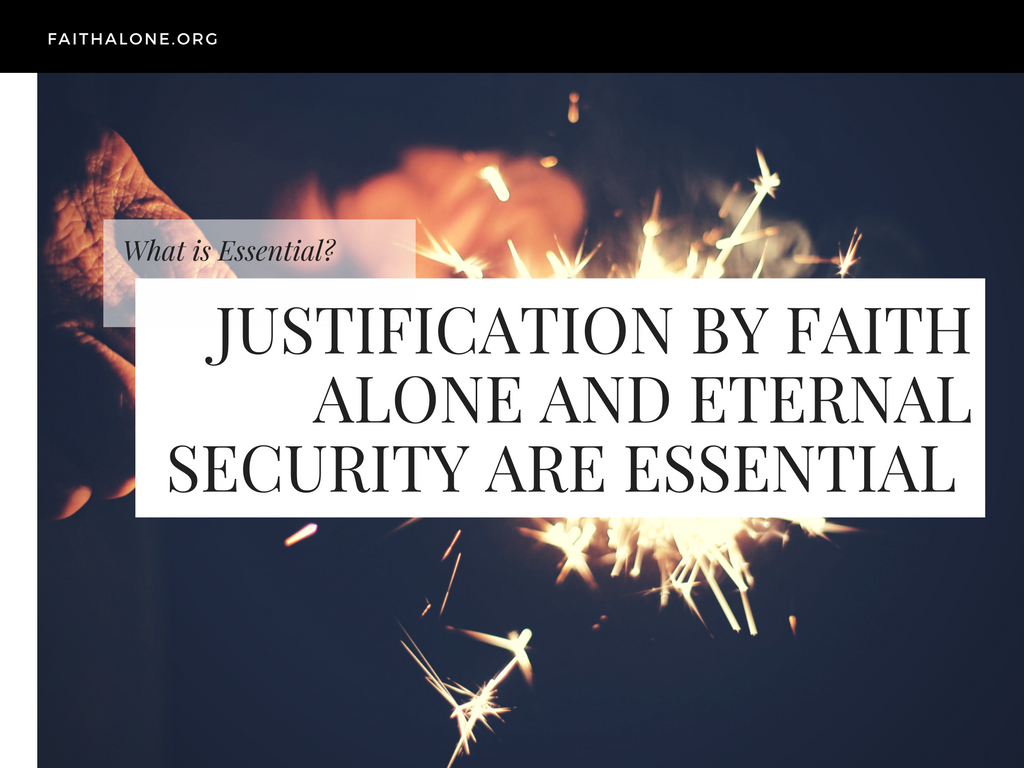by Bob Wilkin
Chuck Swindoll, in an Insight for Living broadcast, taught from Joshua 1. He presented the principle that the new nation which was about to go in under Joshua and take the land of promise “forgot their differences and they closed ranks in unity.” He then quotes the famous saying, “In essentials, unity, in non-essentials, liberty, in all things, charity.”
Of course the difference he finds in Joshua is the fact that there were 13 different tribes. He does not mention any doctrinal differences that they were to forget.
It is a bit of a jump from tribal differences to doctrinal differences. But even if we think that Joshua 1 is driving for such an application, I was surprised by where Swindoll took it.
He then gave an illustration about the unity that George Whitefield, a Calvinist, and John Wesley, an Arminian, experienced. He said that in order for the congregation in Fullerton to go forward in victory they too must not feel that they need to cross every “t” and dot every “i” the same way. He said, “There is room for variety. We are still on the same team. We are not fighting each other” (9:45 mark). [1]
The following really jumped out at me. Swindoll then said:
If we continue to fight over those nitpicking things, we will never pull it off, Ladies and Gentlemen. Never.[2]
The Things Worth Fighting Over
What “nitpicking things” is he talking about?
Earlier in the sermon he had referred to questions about whether pastors are free to marry, and the debate between Pre-Tribulationalism and Post-Tribulationalism.
But immediately before this he gave the illustration of Whitefield’s disagreement with Wesley over Calvinism and Arminianism, a debate that raises questions over the very nature of the message of life.
Is Swindoll saying that it is a matter of liberty whether we believe that one is born again by faith but must work in order to keep that life (Arminianism)? Is he saying it is a matter of indifference whether we believe that one is born again before he believes and then after God gives him the gift of faith he must persevere in faith and good works until death to prove he is truly born again (Calvinism)? Is he saying we should not fight over nitpicky things like eternal security, justification by faith alone, the bondage of the will, etc?
In raising the question of Whitefield and Wesley, Swindoll may have simply chosen a bad example and didn’t mean to give the impression that the doctrine of eternal salvation falls under the category of non-essentials, where there should be liberty. He may have been thinking about debates over the nature of predestination, free-will, prevenient grace, and providence. But it is easy to come away with the impression that he is saying that the doctrine of eternal salvation is a non-essential issue.
Instead, he suggests that we focus on our areas of agreement, the essentials around which we can find unity. But what beliefs are those? Swindoll did not say. I assume he means things like the deity of Christ, the virgin birth, the death and resurrection of Christ, Christ’s return, and the authority of Scripture.
Liberty in Non-Essentials
I agree with the basic statement that there should be liberty in non-essentials. However, justification by faith alone and eternal security are essential issues.
[1] Insight for Living, May 28, 2013 broadcast
[2] 10 minute mark of broadcast


